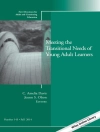This edited volume explores the challenge of fostering critical thinking (CT) skills in science education, presenting the ENCIC-CT model as a framework for development. Named after the Science Education and Competences (Enseñanza de las Ciencias y Competencias, ENCIC) research group at the University of Malaga, Spain, this model emphasizes cultivating CT through socio-scientific issues and daily-life problems. It includes three key domains: knowledge, skills, and dispositions, each encompassing various dimensions addressed through scientific practices like argumentation, inquiry, and modeling. Teaching strategies such as gamification, role-playing, micro-debates, augmented reality, controversy mapping, and digital storytelling are highlighted. Spanning theoretical perspectives and practical experiences from early childhood to higher education, this book consolidates findings from the Spanish R&D project, “Citizens with Critical Thinking: A Challenge for Teachers in Science Education.” It is an essential resource for educators, researchers, and practitioners, offering valuable insights and practical applications for all educational levels.
Tabella dei contenuti
Chapter 1. Theoretical perspectives and approaches for the development of critical thinking.- Chapter 2. Fostering critical thinking in a socio-scientific issue on energy use.- Chapter 3. Development of Critical Thinking in a Historical Context: The Theory of Spontaneous Generation. Ana María Abril-Gallego, Marta Romero-Ariza, Antonio Quesada-Armenteros, and Cristina Cobo-Huesa.- Chapter 4. Personal Autonomy and Decision-Making in Early Childhood Education through the Naturalization of Spaces with the Think-Pair-Share Technique.- Chapter 5. The Comprehensive Treatment of the Urban Space Care Problem through Controversy Mapping in Architecture Students.- Chapter 6. Critical Analysis of Information on Pasteurization by High School Biology Students.- Chapter 7. Secondary School Students’ Argumentation on Energy Production and Consumption.- Chapter 8. Argumentation by secondary school students in an inquiry about yogurt consumption.- Chapter 9. Enhancing Argumentation in Teacher Training through Debates within the Context of Formative Research in Uruguay.
Circa l’autore
Antonio Joaquín Franco-Mariscal is a science education professor at the University of Malaga, Spain. He leads 3 R&D projects, focusing on critical thinking, digital-ecological transition in science education, and mobile applications for scientific argumentation. He has received 2 innovation awards and 12 research awards in Spanish education. He is associate editor on the Revista Eureka board.












